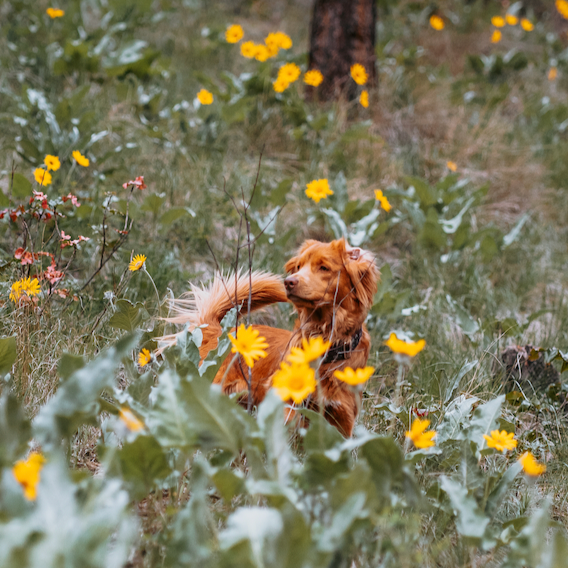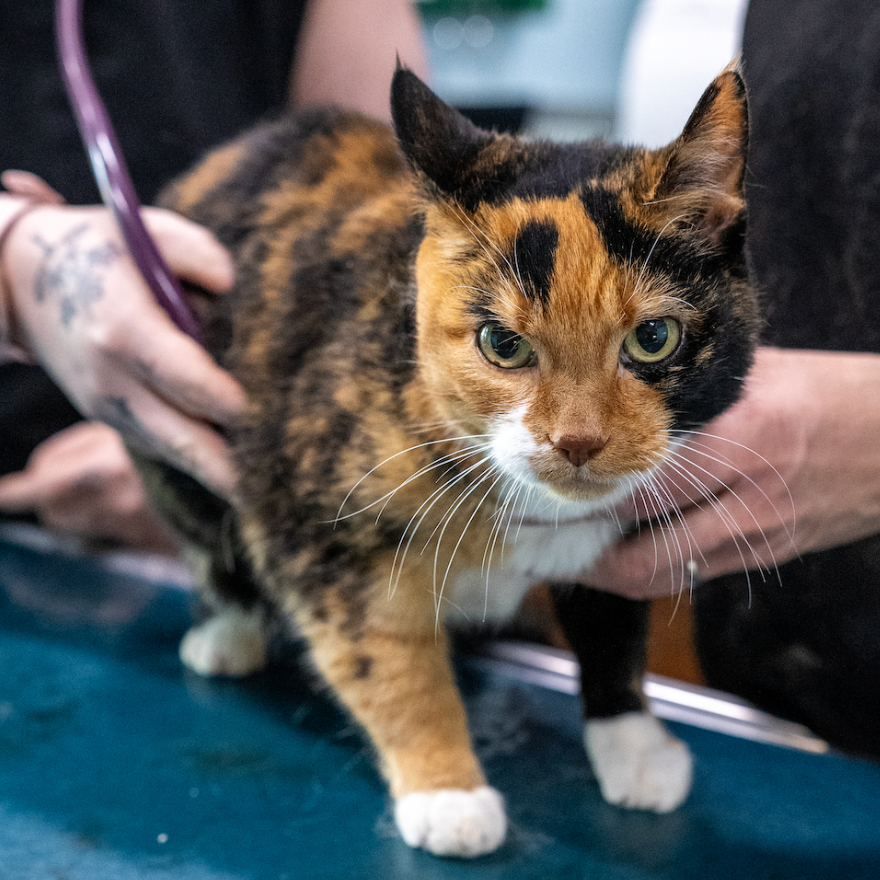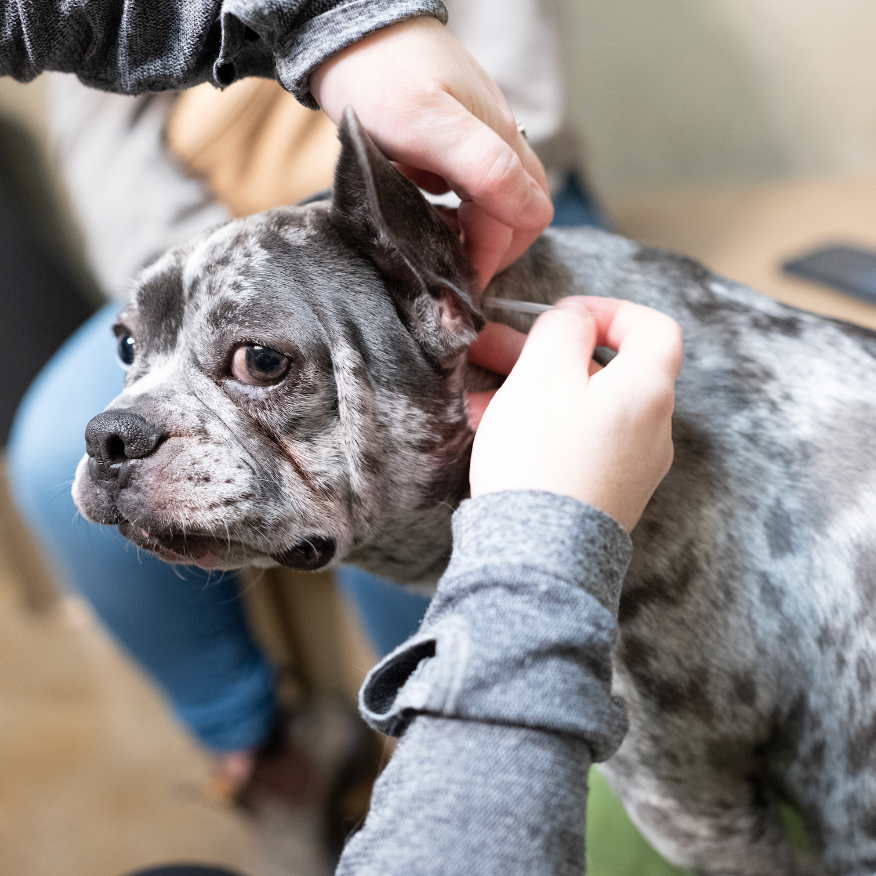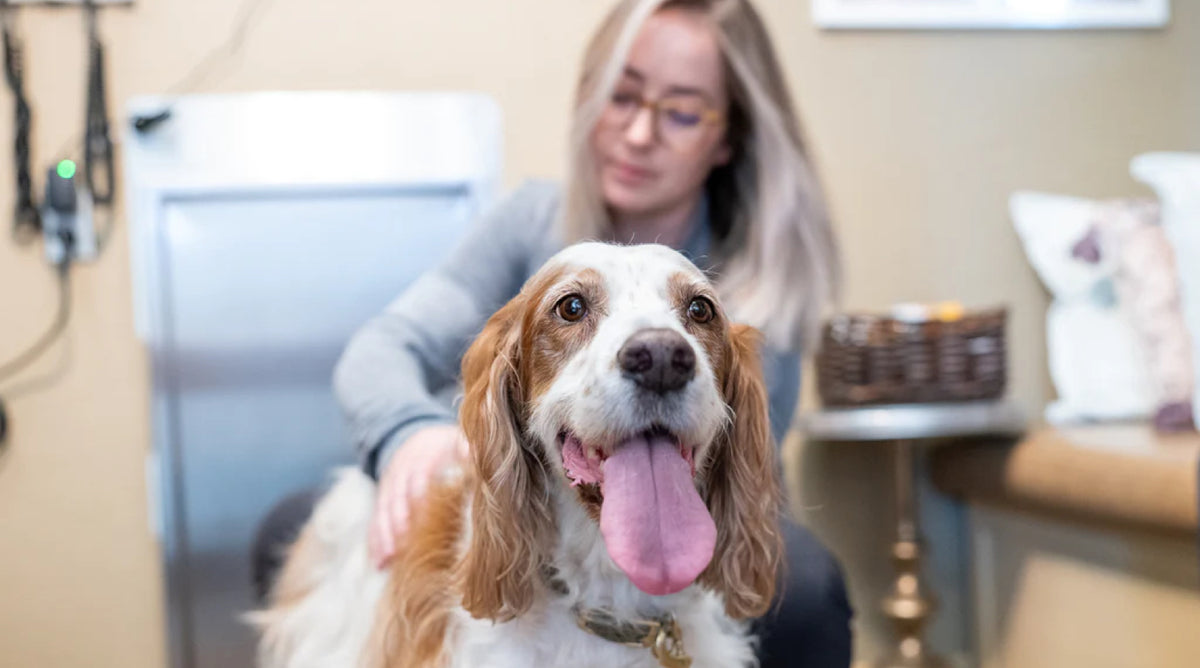Our Green Vet Hospital: Every Day is Earth Day
At Pandosy Village Veterinary Hospital, managing our ecological footprint isn't just an Earth Day activity. We try to be as light on the earth as we can, with every product choice and management decision. We are constantly inspired by other health practitioners and small businesses that are sustainability-minded. Here are some of the ways that we run our veterinary hospital and pet goods shop to be as eco-friendly as possible! If you have any more suggestions for us, we would love to hear them.
It's important that our shop and clinic are as clean and healthy as possible. We use non-toxic, biodegradable dish soap, laundry detergent, floor cleaner and cleaning sprays. Our brands of choice are Method, especially since they have refills, Seventh Generation and Nature Clean. Even our vet disinfecting cleaner, that kills parvovirus, is biodegradable and non toxic. Minimizing our energy use is good for our bottom line, as well as for the earth.
Our entire operation is powered by alternative energy! We are Bullfrog Powered, which means we pay a small premium each month to guarantee that our energy usage is sourced from alternative sources for the power grid.
The Pounce & Hound Fine Pet Goods store lighting is warm and friendly and the clinic's lighting is clean and bright, but all of it is super highly efficient LED. Everything is on motion sensors, from the surgical room to the exam rooms. Needless to say, we use very little energy for lighting. The only exception are the brass and clear glass pendant fixtures in the front, with Edison bulbs. We rarely turn the brass ones on, but the pretty glass ones at the front desk we do have on all day. The big sucker of energy is our X-ray unit. But everything else, including our computers, time out and shut down.
Our veterinary hospital is completely paperless. We have digital records. If someone faxes us, it actually comes into our email, and then we "fax" pharmacies and other clinics back via email too. We send our clients their receipts and patient records digitally... Very few people want it printed. We also use digital newsletters, Facebook and other e-methods of communication with clients. Our staff are scheduled and clock in and out on the iPads (Wagebase ... a great ap) and all our calenders are there too, including patient schedules.
Cloud computing helps us use less electronics, even with a paperless clinic. We don't have a server, or boxes on the computers either. All our computers and software are cloud based... Everything is stored offsite, via the Internet. That means less hardware for us to buy (cheaper! And less electric waste!) and no server to bother with or cool down (energy savings.) Only one trick is that if the internet goes down, we need a backup. So we have one ipad with a SIM card, so when the Internet/power shuts down, we can operate on the cell network. It works wonderfully. For our store, we use Shopify software, which is cloud based. Awesome, Canadian tech company! And for our clinic, we use the cloud-based vet software Vetport.
We are the only veterinary hospital in Canada, and the second in North America, to be a 1% For The Planet organization. That means we donate 1% of our store's sales to environmental organizations. We haven't decided for sure where we are donating our first year's one percent, but I'm thinking we will donate to one of the funds for First Nations to fight Enbridge or Site C.
We employ local people to create the tools we need to do our job. This minimizing shipping, and creates local employment. For example, the countless surgical drapes and tool wraps we use in surgery were made by a BC technician on her home sewing machine. We just bought her the bolts of fabric, and she made them for us, instead of buying them new. Another example are the fabulous pine-beetle-kill-wood shelves that hold our pet food. These gorgeous works of art were made by a local design (yeah, Lavish Design!) and assembled right on site.

In our Pounce & Hound Fine Pet Goods shop, we carry a lot of artisan and locally-made pet products. These don't necessarily cost more than big brands, but it does take a lot of time for sourcing! We like to know the story behind everything we sell, and love supporting others who have home based businesses. From cat collars from Comox to raincoats from Richmond, the pet gear we sell is made to last. Probably the most impactful step we can take as a retail store is to sell products that last, so that you don't have to keep replacing them and making more waste.
Here's the deal. Organic products are important for three reasons... Number one, and most importantly, it so that we don't have pesticides sprayed on cropland, damaging the soil and the ecosystem around it. Also, organic certification means that crops have not been genetically modified, which is the only assurance you have against GMOs. And lastly, there are a host of health problems that come from pesticide and products like Roundup, such as increased allergies and even premature puberty. The punchline is that we have a lot of organic products in store.... Whenever we can get our hands on them. And we don't carry an alternative to those organic products. Some of our certified and non-certified organic products include shampoos, coat sprays, many of the herbal tinctures, cotton toys, wool sweaters, paw balm and healing lotions, and even some food.
Waste management! A fascinating topic, Especially since retail is so insanely wasteful by nature. First of all, we try to minimize the waste we generate by asking our suppliers for minimal packaging. Arnica reuses much of the packaging we get products in for her other online business, which does shipping. We recycle everything... everything you can fit in the regular blue box, as well as many of the veterinary supplies, such as batteries. Since Arnica and Jason live nearby, they put all our our cans and bottle out in the alley, so the people who make a living collecting them can access them easily (it's a neighbourhood thing). They take home food scraps for their chickens, and we also compost anything that the chickens can't eat. The only thing we can't recycle with this system is the glass bottles we use for herbal remedies and prescriptions. So we have a deposit program in house - any client who returns the bottles for reuse gets a $1 back.
Being green means managing your transportation, too. All of our 5 staff members walk or bike to work. Two of our employees live too far away to walk, so they get an alternative transportation allowance equivalent of a monthly bus pass. All of our staff have access to the alternative transport allowance, which can be used for a bus pass, bike lease (yeah Cyclepath!) or new walking shoes. For our business use, we have a membership in the Okanagan Car Share Co-op. Since there is a car parked just a block from our clinic, we use this shared vehicle for pickups, deliveries, and even house calls! Using a shared car means that we don't have to have a clinic car, and takes one less vehicle off the road.
Building our hospital and store gave us lots of opportunities for making greener choices. Our hospital was built with extremely low VOCs - it has amazing indoor air quality. A lot of furniture goes into a store and clinic, and much of it we got second hand. It takes a lot of work and some luck to find the right pieces. Arnica loves telling the story of the toy bin: "I was driving down the highway in creston, when I saw this piece for a toy bin. Funny, I had one almost the same on order, new, and it was going to cost me $1700. But this old nail bin was $200. The orchard store was closing! So I bought it, had my dad deliver it, and we washed and varithaned it... Gorgeous!"

Beside the toy bin, a few of our tables are old, the chairs in the exam rooms are antiques, and of course, there is the front desk. The front desk is 100 years old! It was a general store counter. We had it shipped here, then refinished it for our use.
This is the "before" picture!

And after!

Many other fixtures we had made locally. The stained concrete floor meant very little tile or coverings, which means less shipping, and we employed local artisans.

The lovely cupboards throughout our hospital were made of BC fir, milled in Kamloops and made in Kelowna by the wonderful cabinet maker Castello Custom. The countertops are all concrete, and were all made from scratch in a workshop in Kelowna, using local gravel. Even the glass was locally made, in the surgical suite and the glass walls in the exam rooms. Oh, and the brick was all made in BC, and laid by local bricklayers. We employed four artisan bricklayers for a couple of weeks in our store... And investment, but everyone loves it.
We hope our green choices inspire you to be as environmentally-aware as you can in your own businesses and homes. We are always looking for more ideas to improve, so feel free to send us your green ideas!
Also in Natural Pet Health Blog

Tick Season is here! 🕷🌷
While we are all super excited to get outside again and explore the beautiful Okanagan, this warmer weather means those pesky ticks are back in season! Yep, that's right, it's early March and we're already seeing ticks at Pandosy Village Vet.

Happy Healthy Hearts - Heart Diagnostics
Heart health is an important part of keeping our furry family members happy and healthy. At Pandosy Vet, we recommend annual visits so our vets can give your furry family members a full examination, including checking their hearts! Read on to find out the different tools we can use to see how your cat or dog's heart is doing.

Acupuncture for Cats & Dogs
Pandosy Village Veterinary Hospital offers Traditional Chinese acupuncture, as well as Chinese herbal medicine. This ancient Eastern approach to wellness is more relevant than ever and provides many opportunities to solve issues that Western medicine can't. Traditional Chinese medicine gets to the root of the illness, providing long-term benefits without the possible side effects of pharmaceuticals or surgery.




